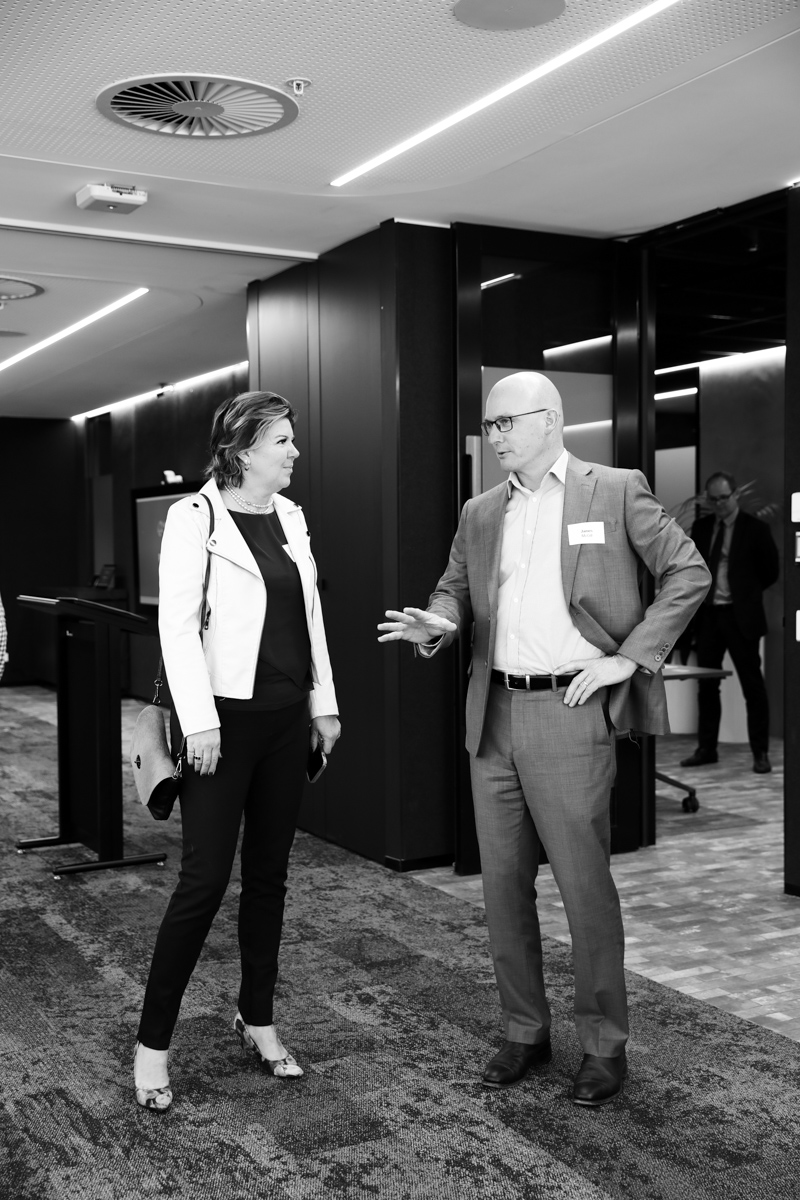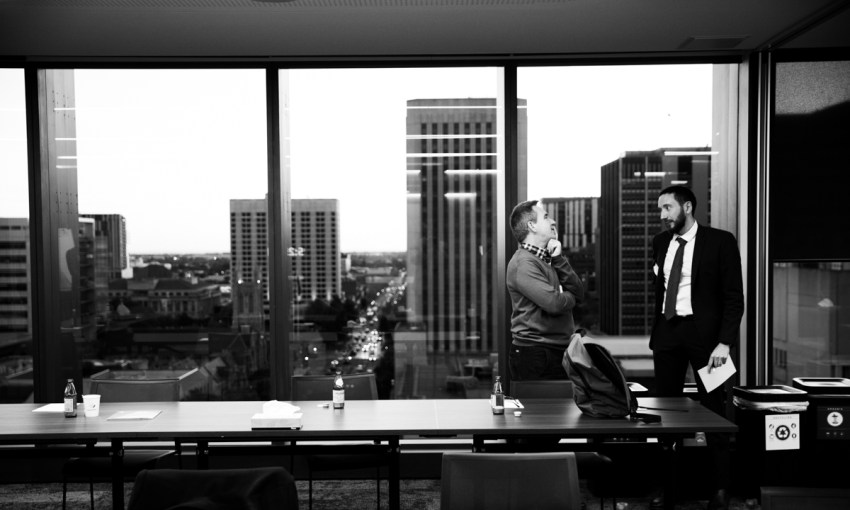The road from startup to success story is paved with a million pitches. CityMag speaks with five young companies who’ve sought angel investment about living in the moment between success and failure.
Pitching at the edge
The smell of freshly laid carpet tiles hangs in the air on level eight of CommBank’s new building on Wakefield Street, where a small collection of high-net-wealth individuals gathers late one Monday afternoon. It’s just past three o’clock and the view south seen through the floor to ceiling windows shows the city slowly falling under its own shadow.
This article first appeared in the 2022 winter print edition of CityMag, on streets now.
CityMag has been invited to attend a meeting run by Southern Angels, a South Australian angel investment group, in which two young startup companies will pitch their fledgling businesses to the room, with the hope of attracting crucial investment.
A meeting like this is held monthly, with the presenting startups selected by Southern Angels’ executive officer, Josh Garratt, and then vetted by the board, which consists of chair Dr David Saint, treasurer James McGill and board members Dr Nick Haan, Leila Henderson and Dr Peter Coldrey.
If an emerging business is deemed investment-ready, they’re invited in to convince some of the around 20 potential investors in the room to support them in transitioning from a bootstrapped minimum viable product to a more fully realised iteration of their idea.
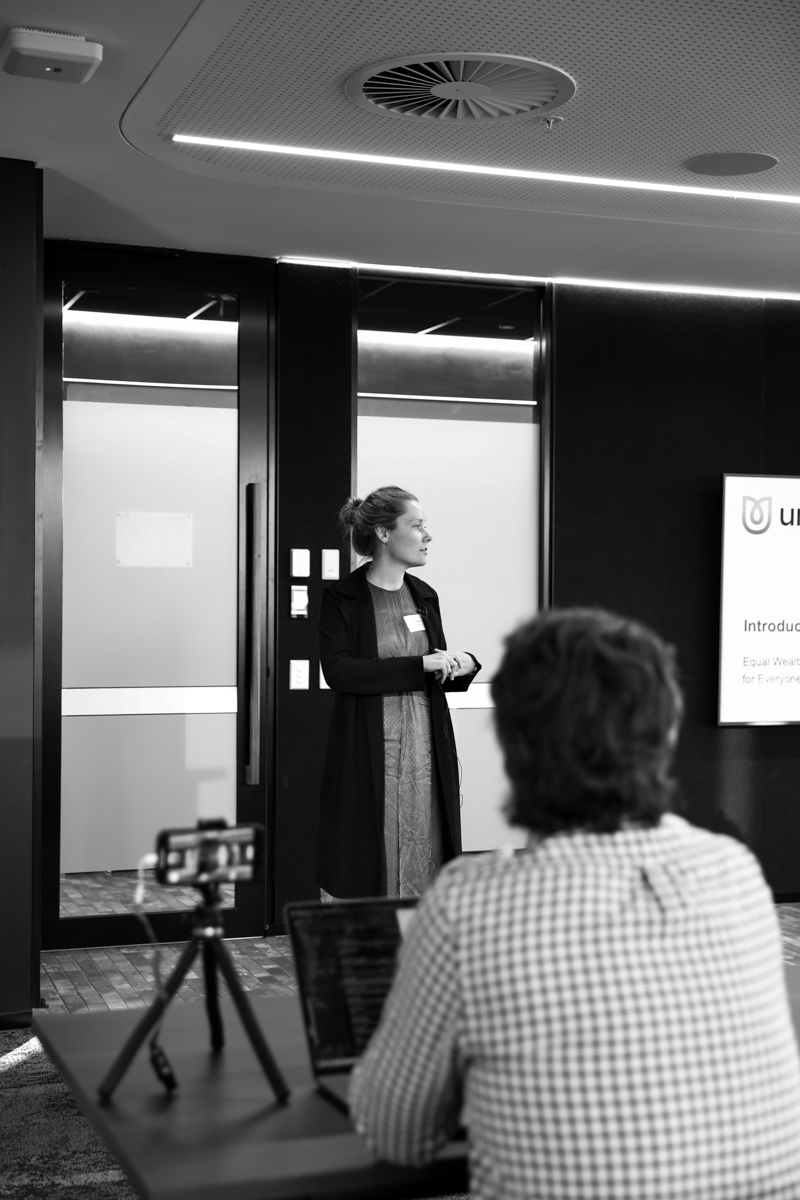
Unhedged’s Saskia Albers mid-pitch
On this day, there are two fin-tech companies pitching. The first is a money transfer platform called MasterRemit, which allows people in Australia to send funds internationally to unbanked people – friends or family members living abroad without a connection to a financial institution. The second is Unhedged, an algorithmically powered investment app.
Desks are organised in a U formation, with each investor given a booklet, pad and pen. There is a seam running through the centre of the room, separating the group by age. On the eastern flank is an older cohort, including a man to CityMag’s right who has been invited in by a friend and is representing his family’s investment trust. The trust has invested in many industries over the years, he tells us, including the importation of sheep embryos for the purposes of breeding, and a foray into hospitality, which, he says, was a lesson in bad decision-making.
We’re also sitting next to Dr Saint, who founded an early version of this angel group, then called Bio Angels, which focussed specifically on bio and med tech startups. Dr Saint brought in Josh, who was connected to Adelaide’s startup community through running coworking spaces and as founder and chair of Coworking SA, to develop a more diverse angel-investment program. The group relaunched as Southern Angels in 2018.
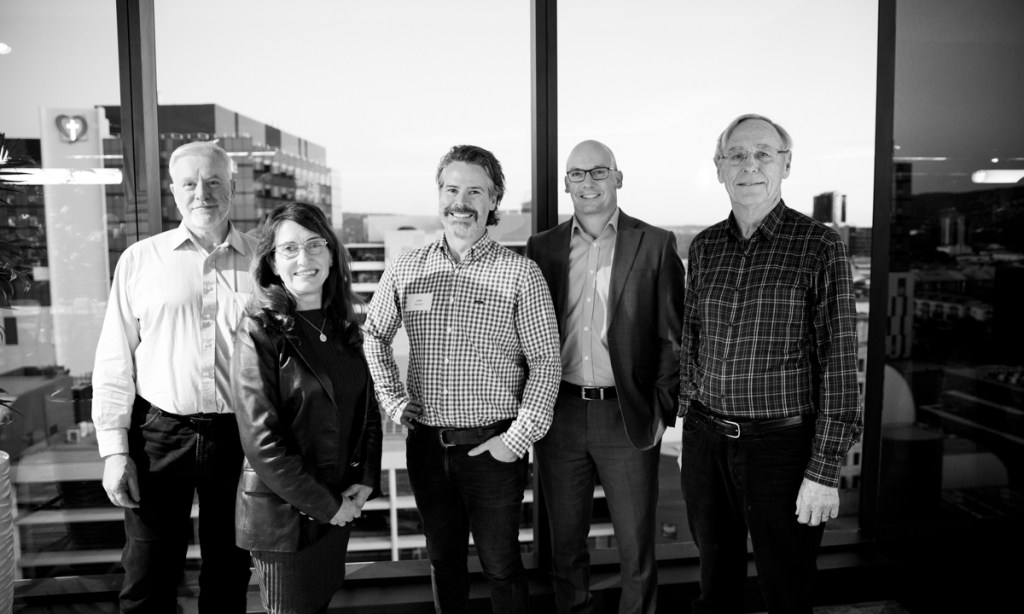
Southern Angels L—R: Dr David Saint, Leila Henderson, Josh Garratt, James McGill and Dr Peter Coldrey
The western side of the room appears much younger. One new investor introduces themselves as the former head of the Asian arm of a major multinational payment platform company. He’s relocated to Adelaide for a calmer life near family. There are two women in the room, one of whom is Leila, the board member.
James tells CityMag he and Josh are making efforts to bring in more women and young people. Angel investors tend to self-select into an older demographic.
“If you look at the profile of a typical angel investor around the country, from a demographic point of view, they tend to be in their late 30s, own their own business or are professional, through to retirees,” James explains. “So, you’ve got a very broad range of people in that group. They’ve got their investments in shares, they’ve got their investments in property, they want something a bit more interesting and hands-on.”
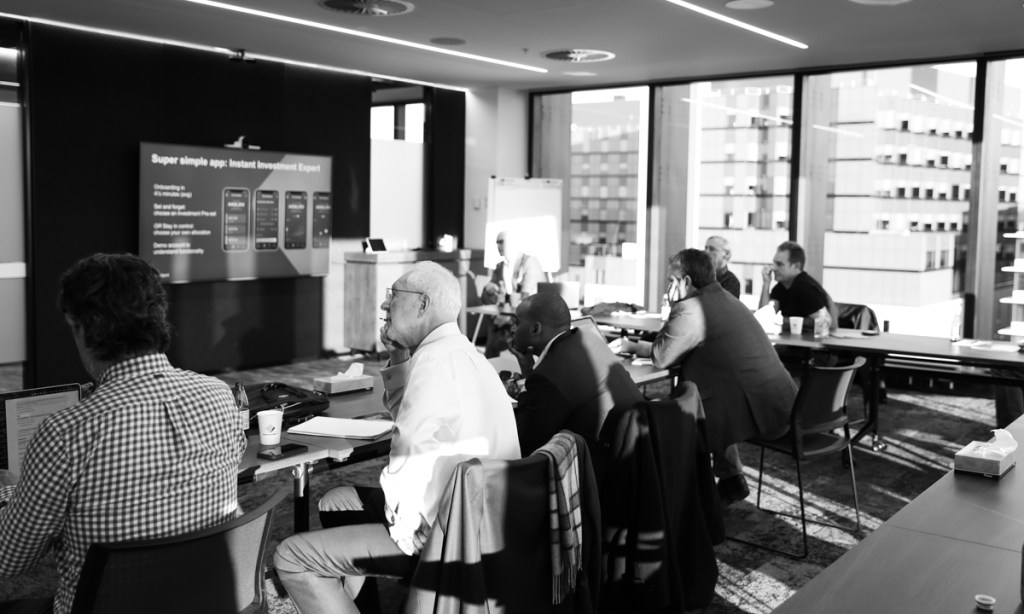
Common attributes amongst angel investors include prior experience in other forms of investing, an “underlying level of interest in something that’s new”, says James, and a readiness to invest in non-monetary ways, like offering practical help and knowledge. Importantly, they will have a tolerance for risk. Failure is an option, and a likely one.
“This is not something like buying a blue-chip share that gives you a nice five per cent dividend yield and it’s been going for 20 years. It’s not about that,” James says.
“You’ve got to understand how to diversify, how to try and do your due diligence so you can hopefully make a better investment decision.
“You’re better walking away saying, ‘This isn’t for me. It’s not my risk profile. I’ll go back to my shares or property’ than to make investments that you regret later on.”
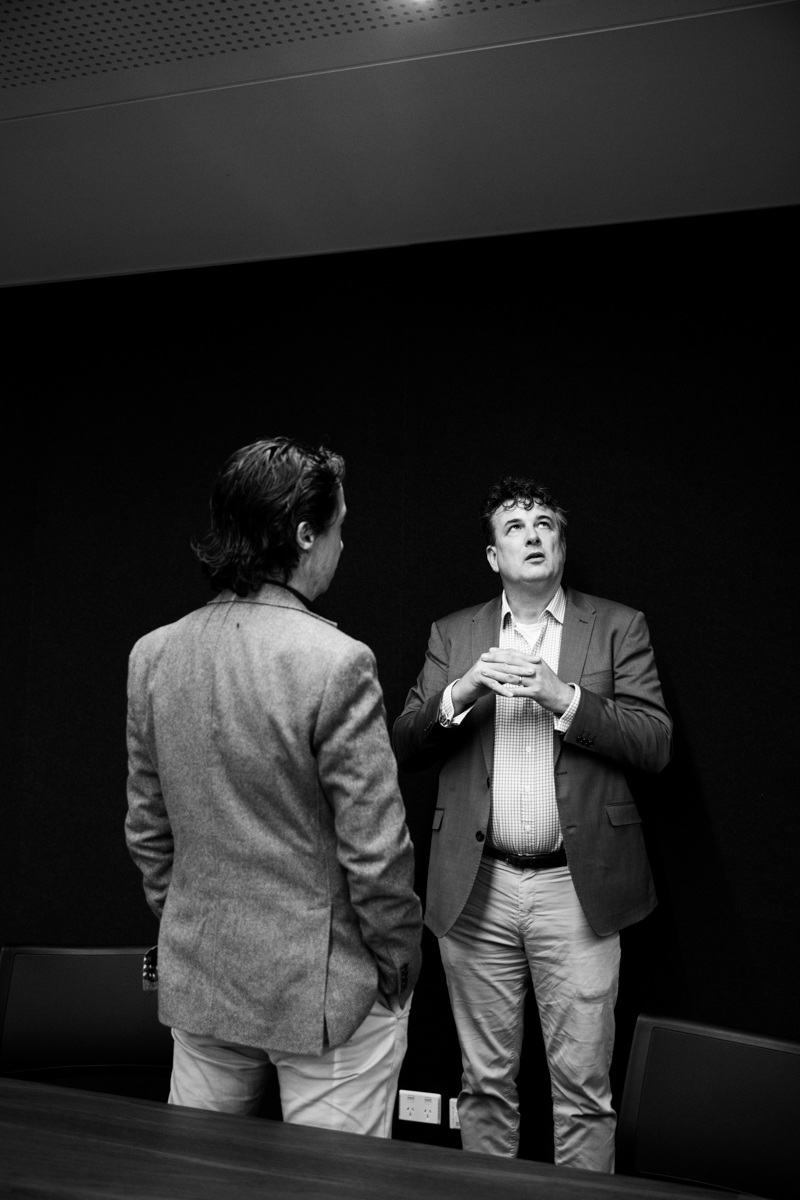
Quite often, startups achieve the minimum-viable-product version of their idea through bootstrapping, which is funding a young business with your own savings or money borrowed from family and friends, plus whatever revenue the business generates. This will get a product to a stage of proving its potential, but a higher level of investment is needed to build an optimised version. This is where angels come in.
Regardless of the true potential of a business, progressing to this next phase rests on the founder’s ability to communicate its worth.
Allison Nikula built a bootstrapped version of her CareApp over 12 weeks, launching in 2018. Allison is an occupational therapist and saw distrust building between the families of elderly people and their care providers. Being one such care provider, and with grandparents in care, she saw an opportunity for a communication line to keep families updated and assure them a professional level of service was being delivered. From this thought, came Care App.
“I spent a very little amount of money creating a prototype, and got Meals on Wheels as a customer, and at that point I’d bootstrapped our first version of CareApp as it looks today,” the 40 Under 40 alum says.
“Off the back of that, acquired a few more customers, and it was late 2018, so about a year and a half after [first having the] idea, we started hitting the radar of people going, ‘Oh ok, maybe this is an investible solution in the aged care space’.”
CareApp suddenly needed investment to build beyond its bootstrapped origins – to create software and pay website hosting costs. Allison and CareApp had both won awards for the early iteration, but pitching for investment was new to the founder.
—Allison Nikula
“My very first pitch was such a disaster that I actually ran off the stage,” she recalls. “The person that was there with me, one of my development colleagues, actually took over and finished the pitch. It was so bad.” The problem was she was pitching “in someone else’s voice,” she says, and in a way that was inauthentic to “the problem we were solving, and the journey that we’d been on”.
Her pitch was also coloured by the problems she imagined the investors might see in her company.
“What I had to do was almost reframe it in my mind and go, ‘I’m actually really excited to be sharing the CareApp journey and story with you’, instead of being concerned and afraid of what people might think,” she says.
“I dusted myself off, and went back to the drawing board, and learnt to back myself in and back the story of CareApp in, and the fact that we really do have a great solution to one of the biggest social and economic challenges that the global population is facing.”
Allison’s first pitch was so traumatic she threw away the top she wore that day – along with whatever bad luck was threaded through it. She started pitching again, including to the Southern Angels, where she was successful in garnering investment.
“That pitch enabled us to raise our seed round of half a million dollars, which was a complete game changer for CareApp, because we were able to employ three staff on the back of that,” she says. “We moved into Stone & Chalk at Lot Fourteen, and it put us in a position to be able to scale CareApp, and in all honesty, no one knew, in late 2019, when I closed that round, that COVID was going to hit, but it actually positioned us incredibly well to support providers during the COVID period.”
The successful pitch also built Allison’s self-confidence as a founder.
“I felt incredibly proud the day I brought all of the investors into the room to nut out the terms of the investment,” she says.
“That was a very challenging but exciting moment, that I had 12 people sitting around a table talking about the terms on which they were going to invest in my very young company.”
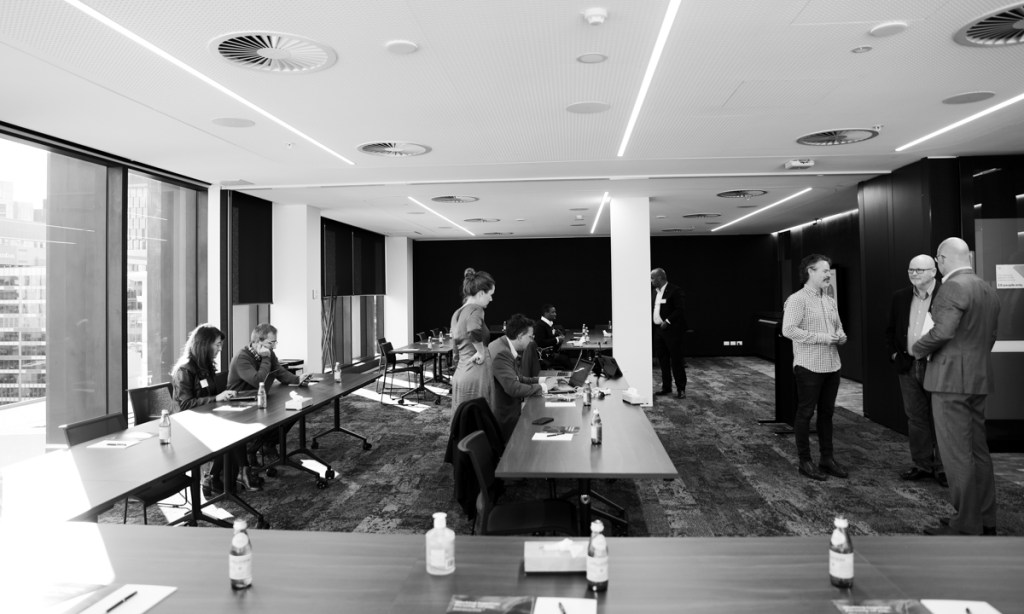
It’s easy to see a narrative of success against the odds in retrospect. This ignores a great deal of consternation along the way.
At a Southern Angels meeting, the investors in the room are not under any pressure to give a simple yes or no answer. The meeting is structured to give a company 15 minutes for their initial pitch, 15 minutes to answer questions from the investors, followed by 10 minutes of deliberation by the investors (while both pitching companies wait outside the room), and a few additional questions after that if the group deems it necessary. After both companies have presented, there are drinks and snacks provided to facilitate networking and general chat, wherein an investor might approach a founder to informally begin the process of orchestrating a deal. Or they might not.
More often, there will be a nervous one- or two-week wait, as the interested investors do their due diligence and weigh up whether the investment feels right. This period was made all the more nervous for David McCann, co-founder of hyper-casual gaming company Mini Mammoth Games, who pitched to Southern Angels earlier this year. At the time CityMag speaks with David, there is a consequential end-of-financial-year deadline looming.
“All of the timing around first of July is about lining up with rebates… and so we need to spend $500,000 in 12 months to claim the 30 per cent rebate from [the Federal Government],” David explains.
If Mini Mammoth receives its target funding, David and his team will get to work creating 70 hyper-casual games over the course of a year. Hyper-casual games are those which can be played in an ad-hoc fashion. “Not a Candy Crush or an Ava’s Manor or something, because it’s not this in-depth casual game,” David says. “It might be something that parents give their kids.”
In addition to flooding the market with dozens of games, Mini Mammoth, which currently lists nine games on its website, will differentiate itself from competitors by creating a higher-quality experience and using advertising as its revenue stream rather than pay-to-progress, or ‘freemium’, gameplay.
David hasn’t heard back from the few bites garnered from his Southern Angels pitch by the time we speak, but he’s confident. A venture capitalist has signalled interest in supplying the entire amount required, if all else falls through. The tricky part will be orchestrating a deal by the end of June that keeps all parties happy.
As a former member of the Army Reserves, David is pragmatic. “It’s not useful” to dwell on potential failures, he says. “When you step outside of the house, you don’t think to yourself, ‘Oh, I’m going to get hit by a bus’. You think, ‘I’m going to cross the road’. Some people will unfortunately get hit by a bus while crossing the road, but none of us are going to pay attention to that, otherwise we wouldn’t be able to cross the road.”
Not receiving the money would be a setback, though. His team of eight developers would need to keep their full-time jobs and continue working at Mini Mammoth on the side, and David would be forced to spend more time seeking funding instead of building games for himself and clients.
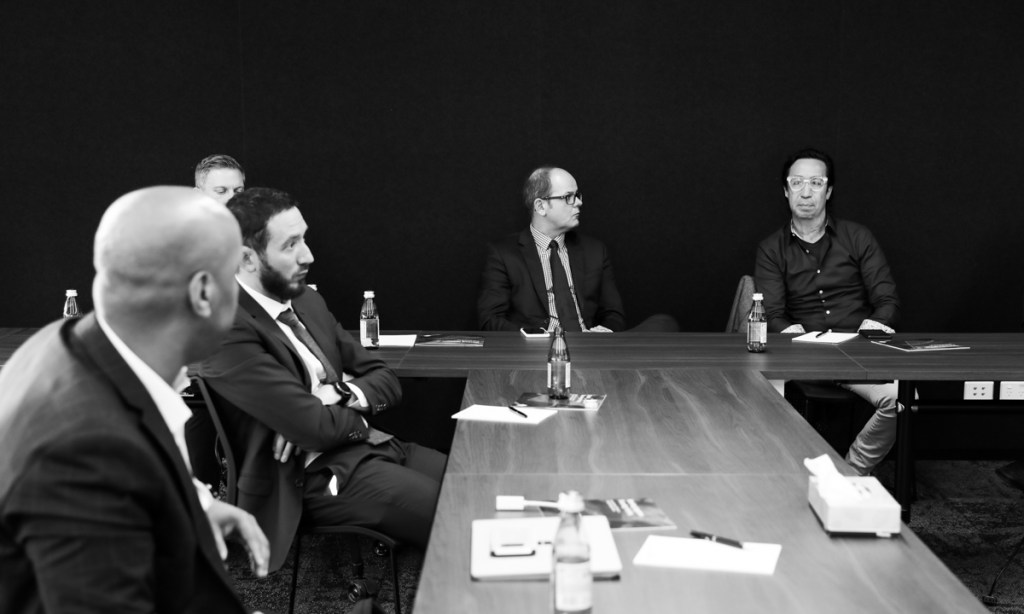
Anna Falkiner and Andrew Hannon are in a similar state of limbo when we catch them on the phone a day later. It’s been a couple of weeks since they pitched to Southern Angels, but they were told to expect a delay due to public holidays. Still, “it has been a little bit nerve-wracking”, Anna laughs.
Anna and Andrew, who are married, are the founders of Cropify, a digital service that uses artificial intelligence, machine learning and computer vision to determine the quality of grain in order to assess its commercial value. The technology they’ve developed can be used on wheat, barley, lentils, chickpeas, and could be applied to “coffee and rice, and really any other small objects”, Andrew says. This is a job currently performed by humans.
Cropify’s underlying technology was developed in collaboration with a university and is bolstered by Anna’s history in marketing and product development and Andrew’s 20 years in the grains industry. The duo is confident in Cropify, but, until recently, they’ve kept quiet about their startup. They know the business addresses a problem the industry is desperate to solve, but there have been “other solutions… that have failed previously”, Anna says. Cropify cannot afford to miss.
The concept has been shown to a few select companies, each “in different stages of the supply chain” within the grain industry. Anna and Andrew say they have “a group of people who are working with us now who are very much on board and believe in us”. Their pitch to Southern Angels was part of a $500,000 capital raise, which will allow them to conduct a commercial-scale trial.
The longer the capital-raising process draws on, the greater the need for Anna and Andrew to assess whether they’re on a path to success. Life in a startup is filled with these moments – what Andrew calls “go/no-go” decisions. The couple says it helps to have someone else in the business to have these discussions with – particularly, as in their case, someone you’re close enough with to have difficult discussions.
“You’ve got to have some milestones, and sometimes they are go/no-go decision points, and fortunately for us they’ve all been ‘go’ decision points, in that we’ve been able to come up with the solution at each stage, and continue to move forward to the point where we are now, on the cusp of going to those commercial trials,” Andrew says.
To not receive funding through Southern Angels is “not a no-go decision”. They will simply keep bootstrapping. “We have got some interest from some potential future customers to invest, so we’ll continue to follow up other avenues,” Andrew says.
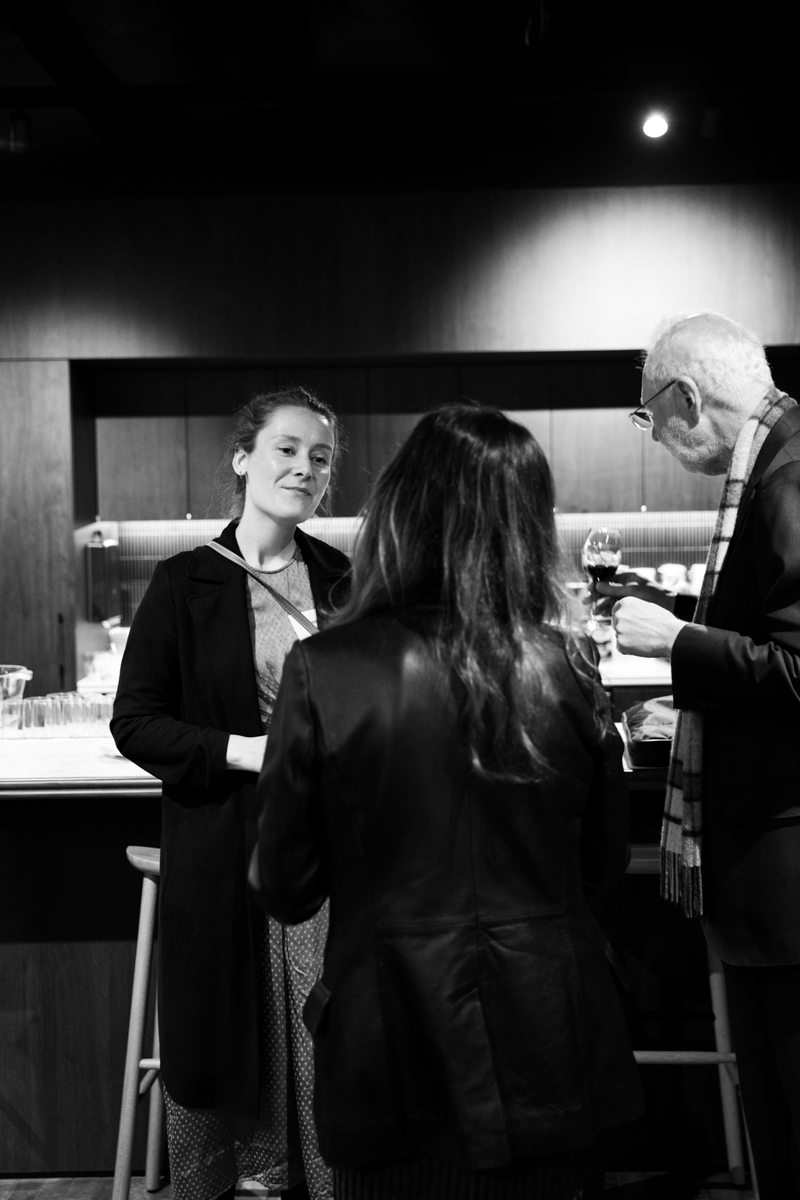
Back in the CommBank building, the city below is now in darkness. The Southern Angels gathering has moved into the communal kitchenette area. There are canapés circling the room, beer and wine flowing, and the earlier attentive silence is filled with relaxed laughter and a more informal style of pitching. You could call it conversation.
CityMag catches Nuradin Omar, who founded Master Remit three years ago with his brother, Hashim, between conversations. Nuradin, who has a corporate law background, usually pitches at these types of events, but Hashim, a civil engineer, presented to the Southern Angels. Master Remit has been bootstrapped to date through family and friends, and they’re seeking $2 million in order to “hire eight more staff” and “grow… five to six per cent”. He’s confident their presentation went over well, but there’s weariness in his voice.
“My public speaking started when I was in corporate law, so for me it’s quite normal. I’ve done it in the past and I could do it again,” he says. “It’s knowing your content. If you’re confident of your delivery and your content, then it’s easy.”
Southern Angels is just one stop for he and Hashim. “We talk to investors now all over Australia – could be Sydney, Brisbane. Most of the are online, right? We’re going to Sydney next week as well,” Nuradin says.
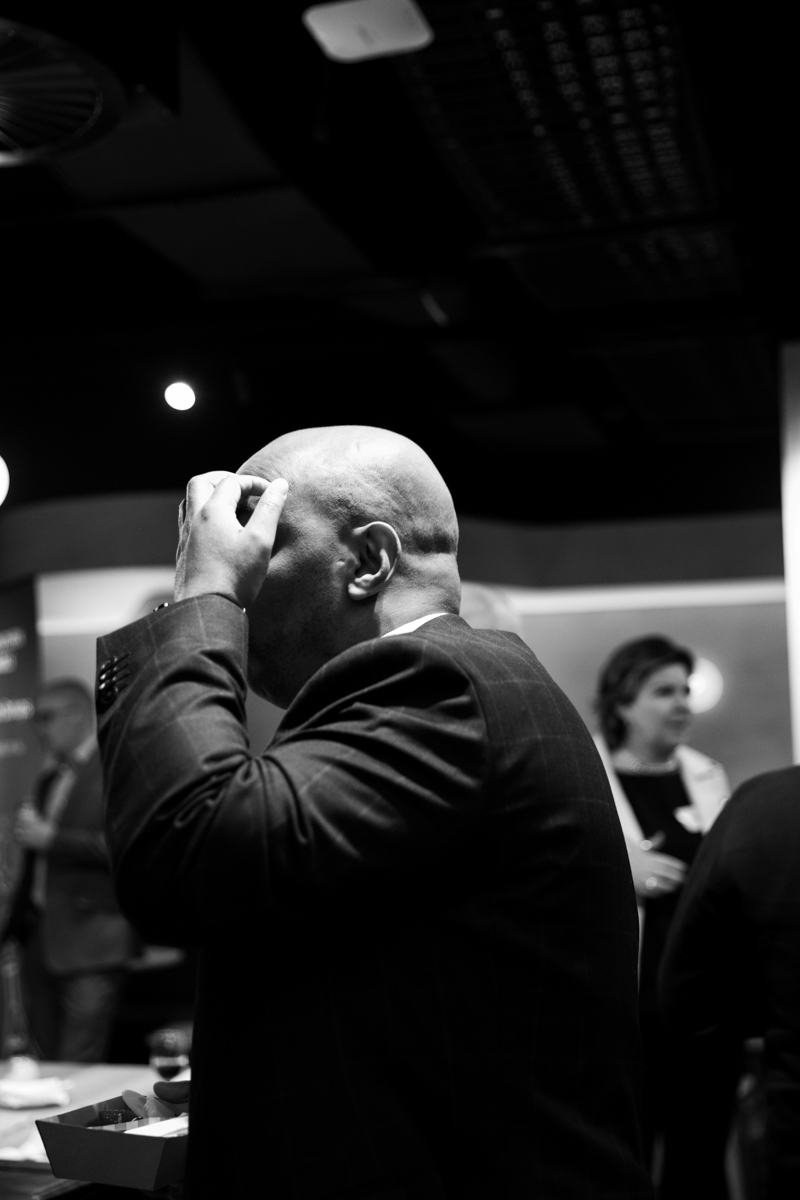
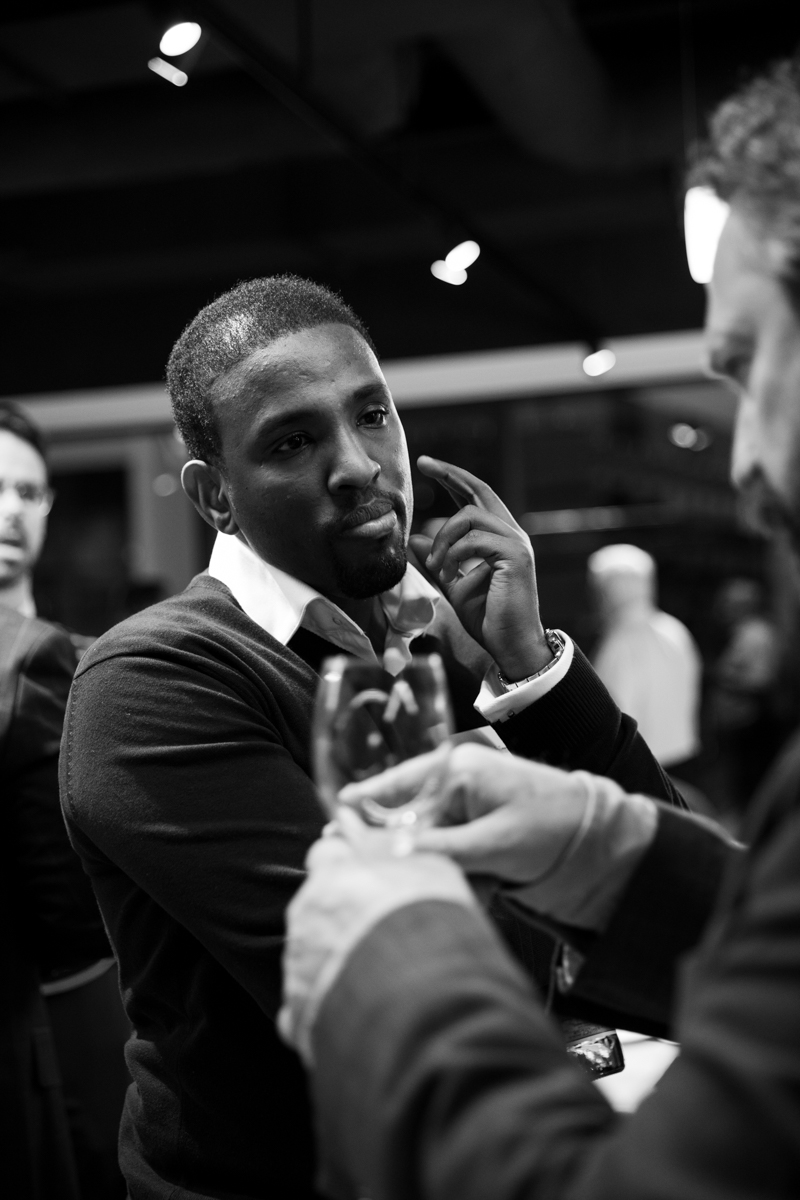
Above: Hashim and Nuradin Omar
Just like David, Anna, and Andrew, Nuradin just wants to be over this particular hill, into something like Allison’s situation – building the next version of his business, with the aid of angel investors.
This is what Josh and the Southern Angels team want to see, too. For them, it’s about presenting investors with a framework for using their wealth to build the next generation of South Australian small- and medium-sized enterprises in emerging industries.
“We just want to stimulate more startups to be able to achieve their missions,” Josh says. “Capital and talent are the two biggest challenges. It’s not isolated to South Australia, that’s the biggest challenge for all startup ecosystems, so we’re really focussed on addressing that capital challenge.”
The Southern Angels website currently lists 18 startups in its portfolio, which is no small contribution to that ecosystem. “Imagine if that was 90,” Josh posits. “That’s a phenomenal impact on the state. And then what that translates to – jobs. All of our members now, all of their kids and grandkids are literally going to be working on high-tech industries right here, instead of having to go to Sydney or overseas to do that.”
“My kids are now at uni,” James adds, “and I know at some point they’ll go to Melbourne, Sydney, overseas or whatever it might be – and that’s great. But if you want them to come back here, you want them to have industries to come back to.
“And to do that, you’ve got to create the industries, because the ones we used to have that drove South Australia aren’t the ones that are going to drive us in the future now.
“Members have different reasons for joining, but fundamentally, you talk about values and talk about culture, I think all of them would have that common shared view that they wanted to help the industries of tomorrow get going.”
